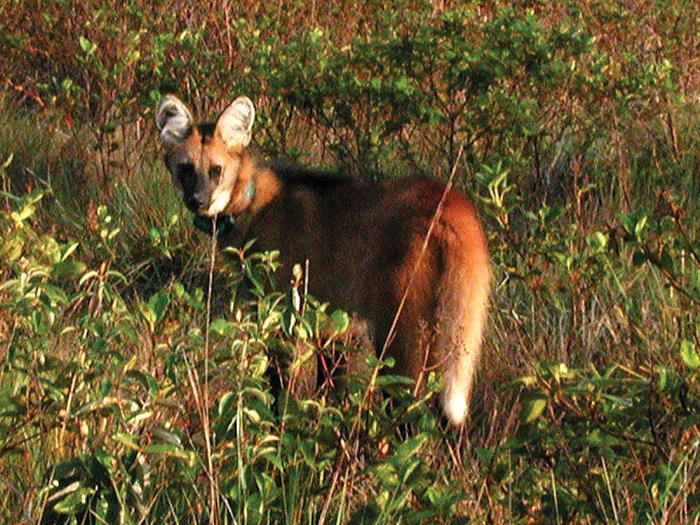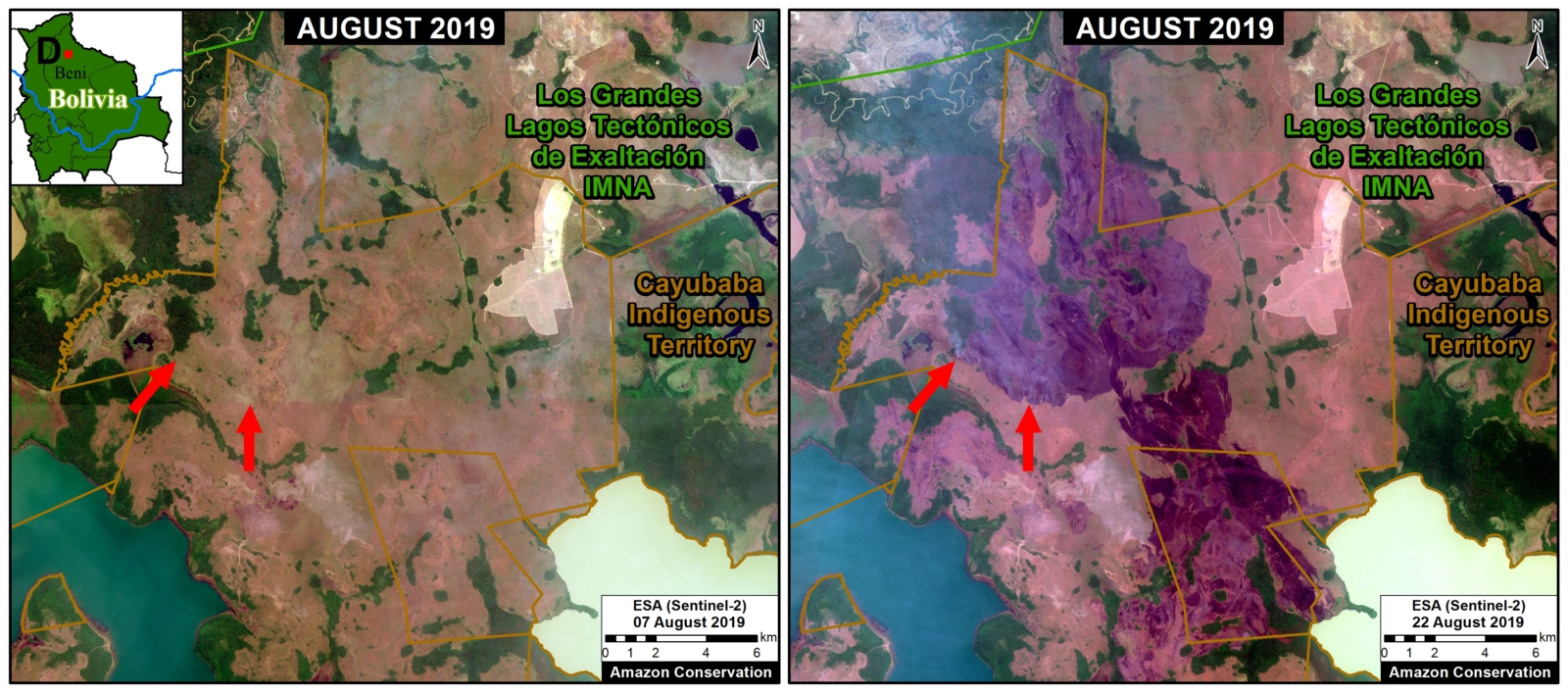Northern Bolivia is home to the Beni, one of the most extensive savanna ecosystems in South America. In the vast Beni landscape—more than 11.7 million hectares—is a unique mosaic of savanna, lowland wetlands, forest islands and rivers.
Seasonal flooding and fire play a central role in its ecology. It encompasses most of the Llanos de Moxos, the world’s largest Ramsar wetlands complex (a renowned designation for globally important wetlands).
The landscape is home to globally-recognized wildlife, such as the maned wolf, and a rich diversity of aquatic and avian species, including the Bolivian river dolphin and Blue-throated macaw. The Beni is economically and culturally important, as it is home to large-scale cattle ranching as well as the traditional livelihoods of indigenous communities.

Legal and illegal expansion of the agricultural frontier is destroying irreplaceable grassland and wetland habitats. Invasive fish compete with ecologically and economically valuable native fish populations. Legal and illegal gold mining contaminate waterways with toxic mercury that affects the health of aquatic species as well as that of humans that depend on this water. Climate change leads to extreme drought and flooding conditions, throwing the ecosystem off balance. Fires, used to manage cattle pasture lands, harm wildlife and quickly expand to damage surrounding forests. And, poorly planned roads are bringing increased uncontrolled development into the savannas.
Building on our track record of ecological research and management expertise in Amazonian savanna, we will lead and build partnerships with key stakeholders including indigenous peoples, municipal governments, producer associations, and protected area managers.

Develop and implement fire management strategies with indigenous communities, livestock farmers, and government.
Develop and pilot models that demonstrate how sustainable resource use can improve livelihoods while also conserving savannas.
Strengthen management of officially declared conservation areas through providing management tools and technical training.
Fill the information gaps needed to better conserve this area through essential science and innovation research on ecosystem function, traditional land management practices, social and ecological aspects of fire, and climate change vulnerability.